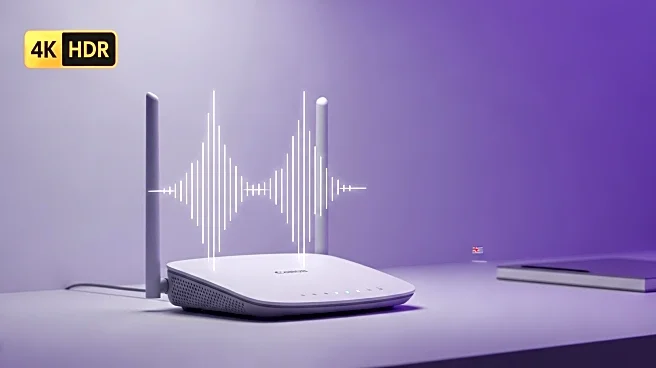What is the story about?
What's Happening?
Researchers at the University of California, Santa Cruz have developed a new system called Pulse-Fi, which utilizes Wi-Fi signals to monitor heart rate without the need for wearable devices. This innovative approach transforms ordinary wireless signals into health trackers, allowing individuals to monitor their heart health using existing Wi-Fi devices in their homes. The system employs machine learning algorithms to analyze signal shifts caused by the human body, accurately measuring heartbeats with minimal error. The study involved 118 participants and demonstrated reliable performance across various body positions and distances, proving the system's adaptability and accuracy.
Why It's Important?
The development of Pulse-Fi represents a significant advancement in health monitoring technology, offering a non-intrusive and cost-effective method for tracking heart health. By eliminating the need for wearable devices or hospital machinery, this system could make preventive care more accessible to a wider population. It has the potential to provide early detection of health issues, allowing individuals to share reliable data with clinicians for better diagnosis and treatment. The integration of Pulse-Fi into smart homes could revolutionize continuous health monitoring, enhancing the quality of life and reducing healthcare costs.
What's Next?
The researchers are expanding the capabilities of Pulse-Fi to include the detection of breathing rates, which could aid in diagnosing conditions like sleep apnea. This development could provide doctors with new insights into sleep quality and respiratory problems, further enhancing the system's utility in health monitoring. As the technology progresses, it may become a standard feature in smart homes, offering continuous tracking of heart and lung function. The widespread adoption of Pulse-Fi could lead to a shift in how health data is collected and utilized, promoting proactive health management.
Beyond the Headlines
Pulse-Fi's ability to use existing Wi-Fi infrastructure for health monitoring raises ethical and privacy considerations regarding the collection and use of personal health data. As the technology becomes more integrated into daily life, it will be crucial to establish guidelines and regulations to protect user privacy and ensure data security. Additionally, the system's reliance on machine learning algorithms highlights the importance of accurate data training and validation to prevent errors in health monitoring.
















